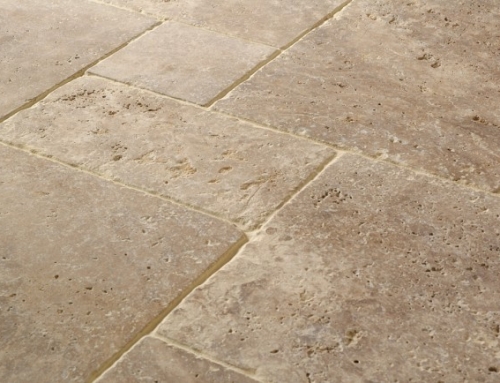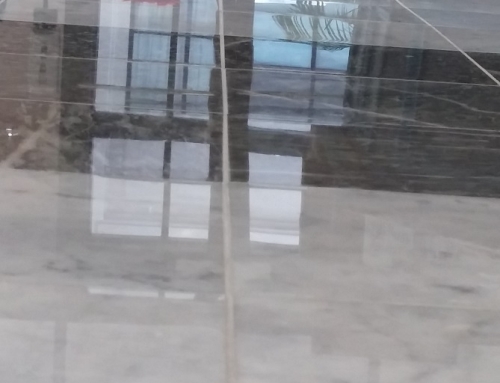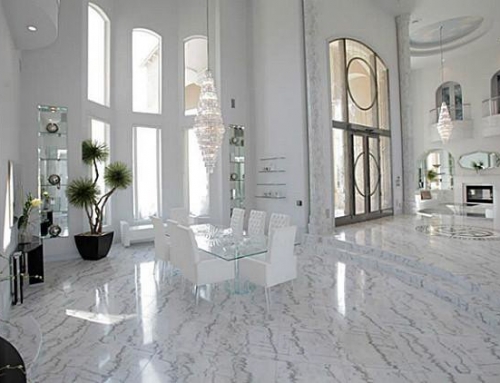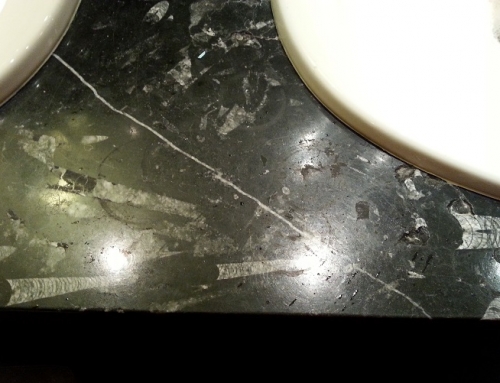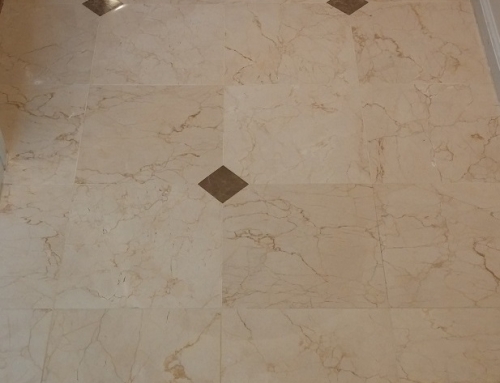Did you know that it is a common misconception that any mark on your marble or granite counter is a stain? While it is possible your marble stained from something like oil or rust, an etch is not a stain. An etch on your marble or granite is a chemical reaction between the calcium carbonate in the stone and acids found in bathroom cleaners, coffee, etc. Your stone is not discolored, but the etch has created a dull mark on your marble or granite. The good news is that The Marble Restoration Company team can remove etches, and with a bit of knowledge about the stain, it too can be removed or lightened.
Stained marble or granite occurs when the sealer has broken down and the porous stone begins to absorb liquids that come into contact with its surface. Kitchen and bathroom counters are especially susceptible to stains due to heavy usage. Sealers break down faster as the surface is used, and counters are exposed to lots of liquid spills from food preparation and normal morning routines. If it is determined that a homeowner does, in fact, have stained marble or granite, The Marble Restoration crew can perform a poultice application to help lighten or remove the stain. Depending on how much information we have about the stain, we can mix the poultice with an additive intended to help remove that type of stain (i.e. oil-based, organic, metal, etc.) After letting the pancake-like poultice mixture work on the stain for about a week, we return to remove the poultice and determine if the stone requires additional applications or if we can continue with the stone restoration process to restore the stone’s natural luster.
For additional care tips for your marble, granite, travertine, terrazzo or other natural stone and grout, please visit our Care Tips page!


